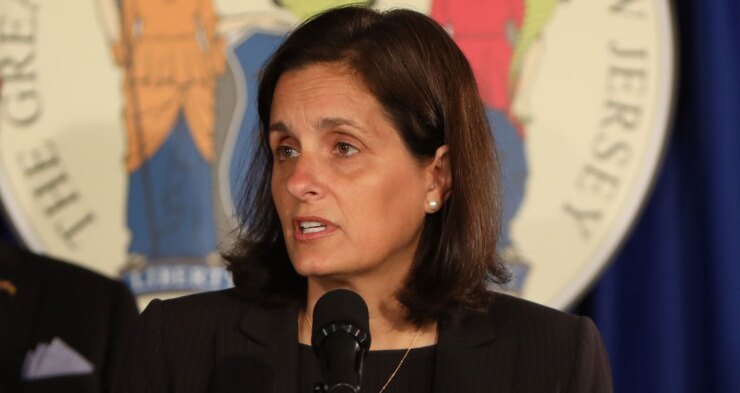In anticipation of large revenue declines stemming from COVID-19, New Jersey Gov. Phil Murphy’s administration is freezing nearly $1 billion in discretionary spending through the 2021 fiscal year.
State Treasurer Elizabeth Maher Muoio announced Monday in a
The largest spending item frozen by the Murphy administration involves $141.8 million for the Homestead Benefit Program, which often provides credits to municipalities aimed at steering property tax relief to eligible homeowners. Muoio said the state is prepared to reimburse municipalities for the administrative costs if they have to issue revised property tax statements.
Previous structurally imbalanced budgets and rising pension liabilities triggered 11 bond rating downgrades to New Jersey between 2011 and 2017 under former Gov. Chris Christie. The Garden State’s general obligation debt is rated A3 by Moody’s Investors Service, A-minus by S&P, and A by Fitch Ratings and Kroll Bond Rating Agency. Only Illinois has lower GO ratings among the 50 U.S. states.

“The impact of COVID-19 on the state, its economy, and budget and finances is unpredictable and rapidly changing, but the state believes that events surrounding COVID-19 will negatively impact the state’s economy and financial condition,” Muoio wrote in the disclosure statement.
Muoio noted that the coronavirus outbreak has led to a state shutdown of casinos and other nonessential businesses that will result in a “significant reduction” in revenue collections from a variety of taxes. She said the state would likely have to revise estimated revenues and projected appropriations for the current 2020 fiscal year that ends June 30 and for 2021. The state is also expecting to encounter liquidity challenges in 2020 resulting from postponing the tax-filing deadine from April 15 until potentially July, according to the disclosure statement.
New Jersey achieved revenue collections of $20.5 billion through February, a 6.4% increase from the same period last year. Following release of Murphy’s $40.9 billion 2021 budget
“It is likely that the full fiscal impact of COVID-19 on the State will change significantly as the situation further develops,” Muoio said in Monday’s disclosure statement. “The actual impact of COVID-19 on the State, its economy and its budget and finances will heavily depend on future events, including future events outside of the control of the State, and actions by the Federal government as well as nations across the world.”





